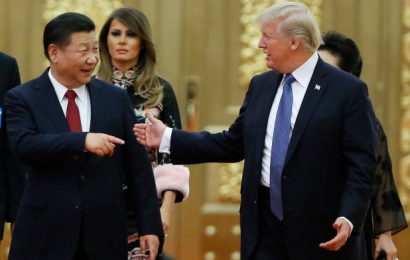Although the US announced their withdrawal from the Iran nuclear deal, European powers maintain their position, saying that the deal is “not dead”.
President Donald Trump announced this Tuesday that the US would withdraw from the JCPOA (Joint Comprehensive Plan of Action), which was initially made in order to curb the nuclear activities taking place in Iran. In exchange for this, sanctions imposed by EU, US and UN were lifted.
In a televised address, President Trump described this deal as a “horrible, one-sided deal that should have never, ever been made”. Additionally, he said that this deal wasn’t intended to protect the US and its allies, but on the contrary, as it had presented “very weak limits on the regime’s nuclear activity and no limits at all on its other malign behaviour, including its sinister activities in Syria, Yemen and other places”.
Iran’s reaction to the US exit
The deal was signed in 2015, under the presidency of Barack Obama, and at that moment, certain economic sanctions against Iran were waived due to this deal. Besides the US and Iran, other members of the UN Security Council that signed the deal were China, Russia, France, Germany and the UK.
As a response, Iran claimed that it would try to salvage the deal and in case this wouldn’t bring the desired results, they would restart the uranium enrichment project.
“If we achieve the deal’s goals in co-operation with other members of the deal, it will remain in place,” President Hassan Rouhani said in an interview.
However, Ayatollah Ali Khamenei, the supreme leader of Iran, doesn’t share the same enthusiasm as the president of Iran, saying that he would need certain “guarantees” from Germany, France and the UK before deciding whether or not to maintain the nuclear deal, as he didn’t trust them.
What the other key powers have to say about this
Mr. Le Drian told a French radio that a meeting between Iran, France, Germany and Britain is scheduled for Monday and that even though America announced its withdrawal, “the deal is not dead”.
Russia announced its disappointment over Trump’s decision of renouncing the Iran nuclear deal, whereas China expressed regret.
Nevertheless, there are some countries that believe the US made a smart move to exit the deal and those are Israel and Saudi Arabia, the greatest regional rivals of Iran.
Benjamin Netanyahu, the Prime Minister of Israel, even mentioned he “fully supports” Trump’s decision and characterized the deal as a “disastrous” one.
What were the terms of the deal?
Iran agreed to reduce the size of country’s stockpile of uranium enrichment for 15 years and the number of centrifuges utilized for uranium enrichment for a decade. Worth mentioning is that uranium is used in the manufacturing of nuclear weapons and reactor fuel.
Additionally, Iran agreed to bring adjustments to a heavy water facility, so that they were unable to produce plutonium.
In exchange for these agreements, Iran’s economic sanctions (which were initially imposed by the EU, UN and US) were lifted.
According to Jonathan Marcus, a BBC correspondent, the deal had its flaws, as it didn’t cover various worrying Iranian activities, such as the missile programme.
Trump’s decision to exit the Iran nuclear deal may have placed America on a collision course with very important allies, experts believe. Also, some people fear that this decision may generate another catastrophic war in this region of the Middle East.
Source: bbc.com


